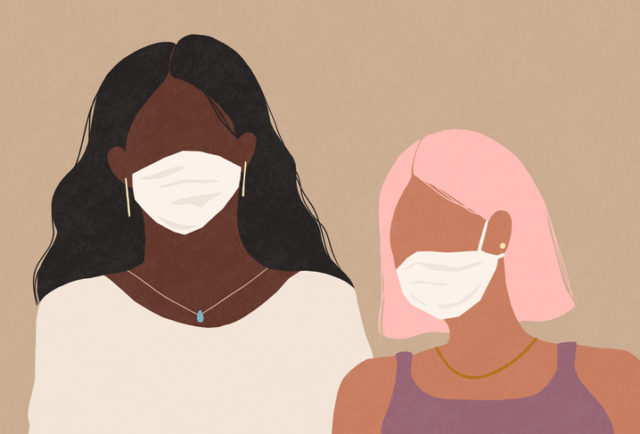
The Covid-19 pandemic has highlighted the impact of our systemic failures to prioritize the health and well-being of communities of color. According to the Centers for Disease Control and Prevention (CDC), over the past year, people of color have suffered disproportionately from Covid-19. Public health data show Covid-19 hospitalization rates among Black and Hispanic people were nearly five times higher than those for non-Hispanic white people. In addition, a recent Washington Post article highlighted Covid-19 death disparities, showing the mortality rates across communities of color were up to 53% higher than whites. This is tragic.
However, if there’s a Covid-19 silver lining, it’s the way in which the pandemic has thrust our health inequities into the spotlight. While it may be tempting to attribute these disparities to skin color, the truth is people of color were so blatantly vulnerable to Covid-19 because our healthcare system has overlooked and undervalued their communities for decades. Sadly, this consistent neglect has so severely eroded trust in the healthcare system that Black Americans who stand to benefit most from Covid-19 vaccines have been least likely to accept them. Clinicians seeking to administer vaccines often find themselves first needing to gain their trust and then having to convince them of the merits and safety of vaccines. Sometimes, people simply need accessible and non-judgmental answers to their questions about the vaccines. General distrust in healthcare and research is understandable, but we have the power to address this problem.
First, we have to acknowledge how individual experiences shape our perceptions and willingness to access healthcare. For example, I grew up in a middle-class family in France and was taught to revere doctors and implicitly trust their word and diagnoses. In the United States, particularly for people of color, structural racism and neglect in healthcare erode the willingness and ability to blindly accept the word of healthcare providers.
Second, throughout the healthcare system, we must collectively reassure patients that it is acceptable and even expected for them to direct their care. This gesture of respect helps build trust and reinforces the need to help people feel empowered to make healthcare decisions that are most beneficial. In a recent podcast, Dr. Ala Stanford, founder of the Black Doctors Covid-19 Consortium, suggested many people of color often expect unpleasant experiences with healthcare providers, so she instead encourages them to “decide it’s going to be different this time” and “realize they are not powerless.” She encourages patients by saying, “I know it feels like you’re powerless. That doc may have 15 minutes when they’re in with you, but that’s your 15.” This bidirectional respect is needed to build trust.
Third, healthcare leadership must become more diverse—demographically, culturally, and philosophically. In my work across the health sector and now leading a team that builds clinical communication and provider scheduling technology for hospitals and health systems, I notice we still have a long way to go. There is tremendous racial diversity on the healthcare front lines and on care teams, including nurses, care coordinators, and support staff, but this diversity is not reflected in the board rooms or among the C-suites and leadership teams of our healthcare institutions. I see it, and I’m sure patients and community members see it too. To build trust with communities of color, the shift toward diversity, equity, and inclusion in healthcare leadership must be accelerated.
Finally, to build trust we must reimagine the financing of healthcare. The community, even beyond people of color, recognizes healthcare is a business with priorities that can be in conflict with patient needs. When trust is absent, patients find help in the most expedient way possible, which is often the ER, a fee-for-service (FFS) model of care. The rise of value-based care could be a gamechanger if implemented to directly influence outcomes and the effectiveness of care.
Showing up for real change
As vaccines point us toward the light at the end of the pandemic tunnel, the work to bridge trust between our healthcare system and communities of color is really just beginning. The approach must be holistic, including having actual boots on the ground to listen and respond to the things we hear. Garnering the trust of communities of color will require cooperation from stakeholders across the healthcare ecosystem and a recognition that patients must be supported to become deeply engaged in their care.
The pandemic has shown us we must change. If we want to improve chronic health conditions, if we want to help at-risk communities get educated about and vaccinated against Covid-19 or anything else, if we want to ensure that people in lower income communities aren’t simply lost in the confusing labyrinth that is our healthcare system, then we must show up. We have to make the effort and do what it takes to build trust. We have to learn what patients need and, importantly, how we can help. We have to react and readjust as necessary when conditions change or new information surfaces.
It’s what we all deserve, and I guarantee we’ll be better for it.







